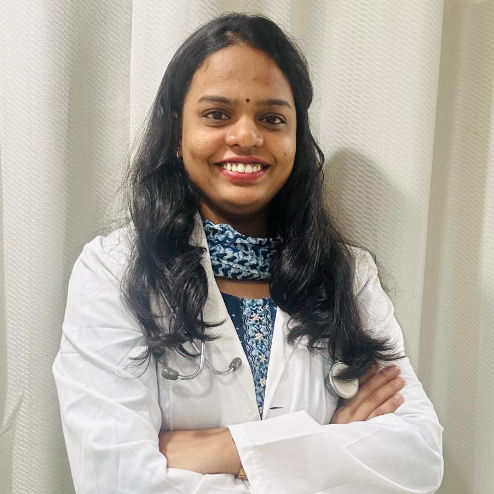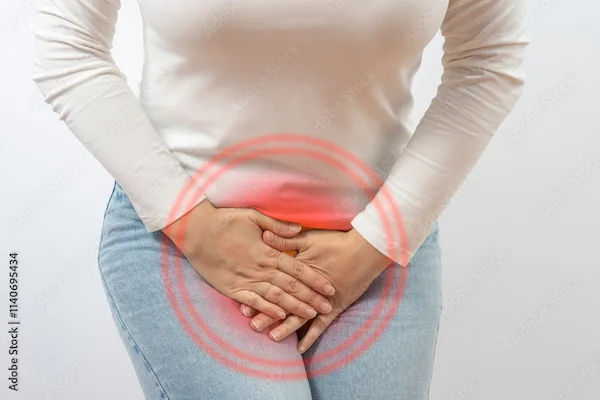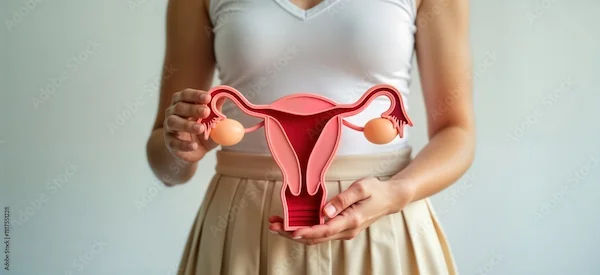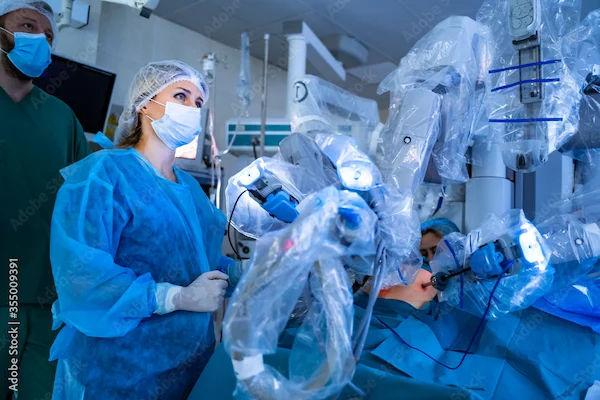Average Age For Hysterectomy
Explore the average age for hysterectomy, common reasons for the surgery, and what women can expect before and after the procedure at different life stages.

Written by Dr.Sonia Bhatt
Last updated on 4th Jul, 2025
.webp?tr=q-80,f-webp,w-350,dpr-2,c-at_max 700w)
Introduction
A hysterectomy is a surgical procedure to remove a woman’s uterus, and sometimes other reproductive organs like the cervix, ovaries, or fallopian tubes. It is a common surgery, but many women have questions about when it is typically performed and what factors influence the decision.
In this article, we’ll discuss the average age for a hysterectomy, reasons why women undergo this procedure, and how to manage health before and after surgery.
What Is the Average Age for a Hysterectomy?
The average age for a hysterectomy varies, but studies show that most women undergo this surgery in their 40s or early 50s. Some women may need it earlier due to medical conditions, while others may have it later in life.
Why Does Age Matter?
Premenopausal Women (Under 40s): Hysterectomy at a younger age is usually due to severe conditions like fibroids, endometriosis, or cancer.
Perimenopausal Women (40s-50s): This is the most common age group for hysterectomy, often due to fibroids, heavy bleeding, or uterine prolapse.
Postmenopausal Women (50+): Hysterectomy may be performed for cancer treatment or chronic pelvic issues.
To Know When To Get Hysterectomy Consult Top Gynaecologists
Common Reasons for a Hysterectomy
Women undergo hysterectomies for various health reasons, including:
1. Uterine Fibroids
Non-cancerous growths in the uterus that cause pain, heavy bleeding, or pressure.
Most common reason for hysterectomy in women aged 35-50.
2. Endometriosis
A painful condition where uterine tissue grows outside the uterus.
If medications fail, a hysterectomy may be recommended.
3. Heavy or Irregular Bleeding
Excessive menstrual bleeding that doesn’t improve with medication.
Can lead to anaemia and severe fatigue.
4. Uterine Prolapse
When the uterus slips into the vaginal canal due to weakened pelvic muscles.
Common in older women or after multiple childbirths.
5. Cancer
Uterine, cervical, or ovarian cancer may require a hysterectomy.
How Does a Hysterectomy Affect Health?
A hysterectomy is a major surgery and can impact a woman’s health in different ways:
Physical Effects
Menopause (if ovaries are removed): Sudden hormonal changes can cause hot flashes, mood swings, and bone loss.
Recovery Time: Full recovery takes 4-6 weeks (longer for abdominal hysterectomy).
Pelvic Health: Some women experience bladder or bowel changes.
Emotional Effects
Some women feel relief, while others may experience sadness or anxiety, especially if fertility is affected.
Tips for Managing Health Before and After Hysterectomy
Here are some helpful tips for managing your health before and after a hysterectomy to support a smooth recovery and maintain overall wellbeing:
Before Surgery
Discuss Options: Explore alternatives like medications, hormone therapy, or less invasive procedures.
Ask About Ovaries: If possible, keeping ovaries can prevent early menopause.
Prepare for Recovery: Arrange help at home for the first few weeks.
After Surgery
Follow Doctor’s Advice: Avoid heavy lifting and strenuous activities.
Pelvic Floor Exercises: Strengthening pelvic muscles helps with recovery.
Hormone Therapy (if needed): If ovaries are removed, discuss hormone replacement with your doctor.
Healthy Diet & Hydration: Helps with healing and prevents constipation.
When to Consult a Doctor?
If you’re experiencing:
Severe pelvic pain
Uncontrollable bleeding
Signs of uterine prolapse
Suspected fibroids or endometriosis
It’s important to consult a gynaecologist to discuss whether a hysterectomy is the right option for you.
Conclusion
A hysterectomy is a life-changing decision, and the average age for this surgery is typically between 40-50 years. While it can provide relief from chronic conditions, it’s important to weigh the benefits and risks with your doctor.
If you’re considering a hysterectomy or have concerns about your reproductive health, you can book a consultation with an expert gynaecologist on Apollo 24|7. Early diagnosis and treatment can improve your quality of life.
Consult Top Gynaecologists
To Know When To Get Hysterectomy Consult Top Gynaecologists

Dr. Sanjan Das
Obstetrician and Gynaecologist
15 Years • MBBS,MS
Bengaluru
Apollo Clinic, Sarjapur Road, Bengaluru

Dr. Debashree Saha
Obstetrician and Gynaecologist
4 Years • MBBS, MS (Obstetrics & Gynaecology)
Kolkata
DR. DEBASHREE SAHA Clinic, Kolkata

Dr. Mona Yadav
Obstetrician and Gynaecologist
19 Years • MBBS, MD (Obstetrics & Gynaecology)
Dombivli
Nulife multispeciality, Dombivli

Dr. Sunabha K Ghosh
Obstetrician and Gynaecologist
9 Years • MBBS, MS (Obstetrics & Gynaecology), DNB (Obstetrics & Gynaecology), MIAGE, RCOG Associate [UK]
Kolkata
Gajanan Multispeciality Clinic, Kolkata

Dr. Soumya P
Obstetrician and Gynaecologist
6 Years • MBBS,MS (OBST & GYNAE)
Bengaluru
Apollo Clinic, JP nagar, Bengaluru
Consult Top Gynaecologists

Dr. Sanjan Das
Obstetrician and Gynaecologist
15 Years • MBBS,MS
Bengaluru
Apollo Clinic, Sarjapur Road, Bengaluru

Dr. Debashree Saha
Obstetrician and Gynaecologist
4 Years • MBBS, MS (Obstetrics & Gynaecology)
Kolkata
DR. DEBASHREE SAHA Clinic, Kolkata

Dr. Mona Yadav
Obstetrician and Gynaecologist
19 Years • MBBS, MD (Obstetrics & Gynaecology)
Dombivli
Nulife multispeciality, Dombivli

Dr. Sunabha K Ghosh
Obstetrician and Gynaecologist
9 Years • MBBS, MS (Obstetrics & Gynaecology), DNB (Obstetrics & Gynaecology), MIAGE, RCOG Associate [UK]
Kolkata
Gajanan Multispeciality Clinic, Kolkata

Dr. Soumya P
Obstetrician and Gynaecologist
6 Years • MBBS,MS (OBST & GYNAE)
Bengaluru
Apollo Clinic, JP nagar, Bengaluru




